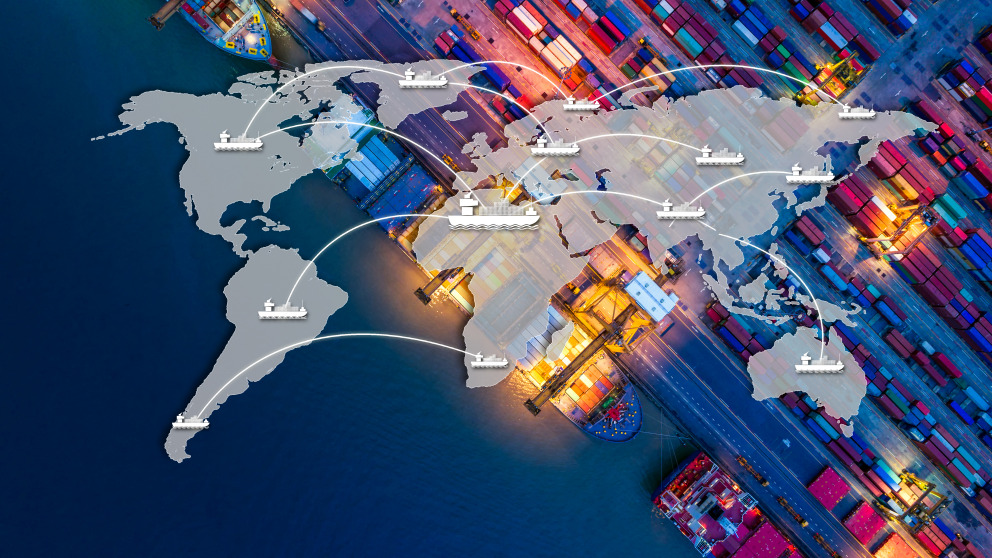Transitioning From a Linear to a Circular Economy
22.02.2022
How will industrial value chains transform as decarbonisation gains momentum? Together with the IGBCE’s Foundation for Labour and Environment and the Institute for Advanced Sustainability Studies (IASS), the German Energy Agency (dena) has published a report examining the interdependencies affected by this transformation – a topic that will receive more attention from policymakers in the future.

The transition to climate neutrality and digitalisation, along with crises like the corona pandemic, are driving the transformation of industrial value chains. A discussion paper published by dena, the trade union IGBCE’s Foundation for Labour and Environment and the IASS shows that the effects of this transformation are complex and call for active political steering, forward-looking coordination and the development of a broad strategy.
“While certain aspects related to the restructuring of industrial value chains are being discussed in isolation, we urgently need a holistic view of the drivers, effects and challenges involved,” says Andreas Kuhlmann, chief executive of dena. He argues that the goal must be to promote a new culture of cooperation among policymakers, the scientific community and civil society to ensure that climate neutrality goals are met – and to speed up innovation for this to happen.
The report “Auf dem Weg zur Klimaneutralität – Neustrukturierung industrieller Wertschöpfungsketten” (Towards Climate Neutrality – Restructuring Industrial Value Chains) presents an overview of the complex interdependencies that will be affected by upcoming changes and provides entry points for a broad societal discussion. Changes in the labour market, greater consideration of geopolitical aspects and the improvement of the circular economy, among others, are important areas of action. The report shows that there are still untapped potentials in these areas. Deliberate and systematic action is necessary to retain industrial production, encourage innovation, and advance new industrial value chains in Europe.
The labour market and transformation
The report pays particular attention to the potential consequences of transformations in the labour market. As industries can be firmly anchored in a region, the restructuring of value chains might lead to structural ruptures – with serious consequences for employment. The authors argue that a regionally focused industrial policy could help to prevent this. Targeted modernisation and development of infrastructure could make existing industrial clusters attractive sites for new investment.
“Industrial workers will be hit hardest by the negative effects of restructuring. So our main goal must be to implement a forward-looking strategy to reskill and prepare industrial workers, especially in SMEs, for the transformation and its future challenges. This will help to prevent structural ruptures and declining prosperity,” stresses Dr Kajsa Borgnäs, executive director of the Foundation for Labour and the Environment.
The EU as a frontrunner for climate-friendly supply chains
As imports of fossil fuels are set to decrease over time, Europe is facing the transformation of industrial value chains across the continent. This will go hand in hand with new dependencies and new sources of competition related to the growing importance of green hydrogen. This is also true for critical raw materials that are necessary for the production of hydrogen and related technologies and components, for example platinum or iridium. But it is not simply a matter of forging new partnerships for the import of critical resources, according to the report. It is equally important to promote European values and standards as well as socioeconomic development and political stability in the European neighbourhood. “The decarbonisation of industrial value chains will not succeed unless it is accompanied by international policy measures,” says Dr Rainer Quitzow, research group leader at the IASS and co-author of the paper. “That calls for establishing large-scale international transformation partnerships, especially with countries in the European neighbourhood. If the EU is successful, it will act as a regional anchor for establishing climate-friendly supply chains.”
Creating a circular economy is part of the solution
The report sees transitioning from a linear to a circular economy as the key. “Without a strong circular economy, we have no hope of reaching climate neutrality,” says Yana Zabanova, research associate at the IASS and co-author of the report. “But a circular economy entails much more than just recycling. It calls for the fundamental restructuring of all parts of the value chain, the introduction of innovative business models, and substantial investments in research and development.”
Further analysis is necessary
The discussion paper is a summary of a series of workshops that dena organised in with the IASS Potsdam and the Foundation for Labour and the Environment in the autumn of 2021. Over 120 experts from business, science, civil society and politics discussed the challenges posed by the transformation towards a climate-neutral economy. The participating institutions view the recommendations outlined in the report as the first step towards a broader societal discussion on the multifarious aspects of this transformation.
To the report "Auf dem Weg zur Klimaneutralität – Neustrukturierung industrieller Wertschöpfungsketten"


